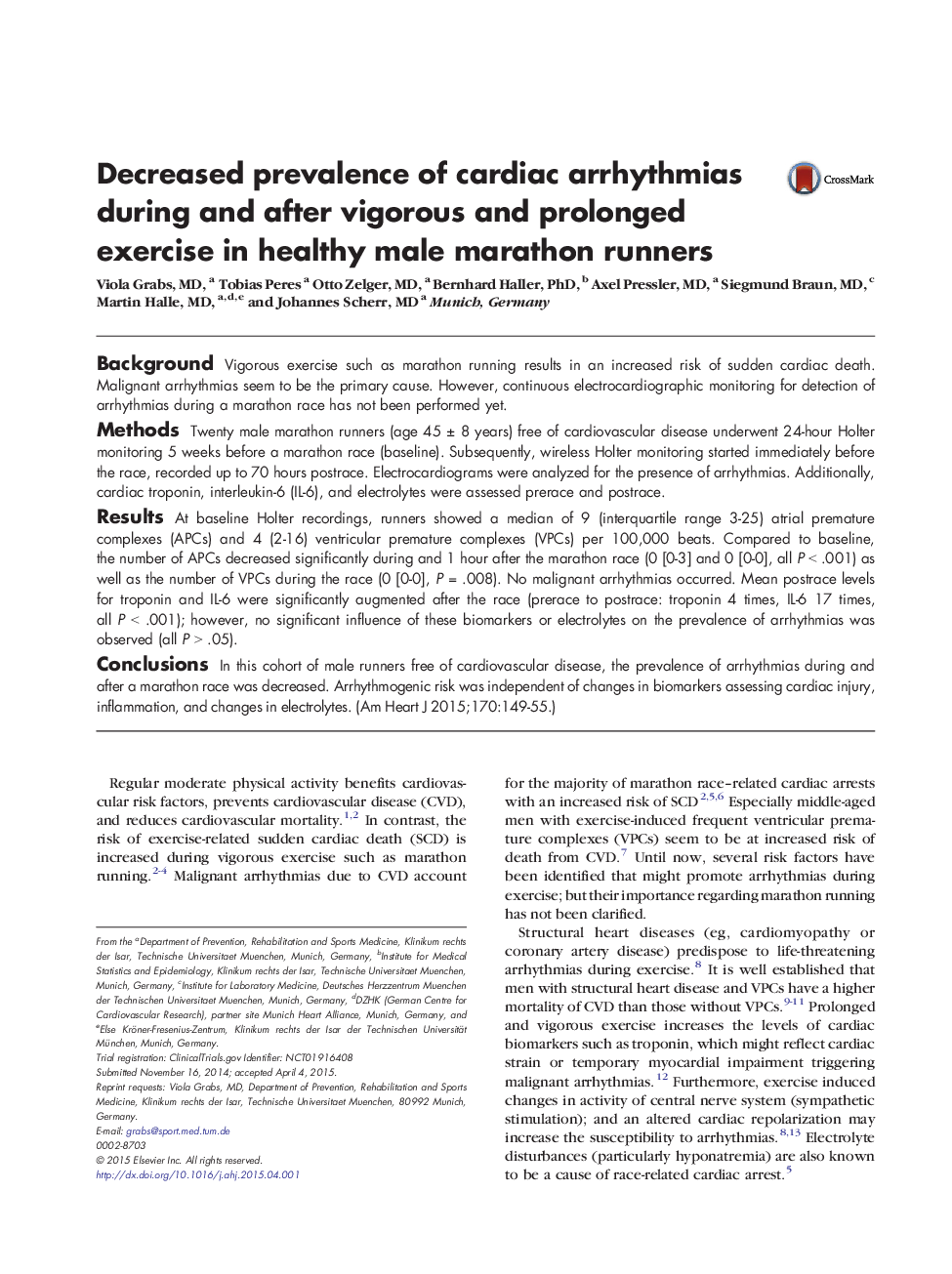| Article ID | Journal | Published Year | Pages | File Type |
|---|---|---|---|---|
| 5928168 | American Heart Journal | 2015 | 7 Pages |
BackgroundVigorous exercise such as marathon running results in an increased risk of sudden cardiac death. Malignant arrhythmias seem to be the primary cause. However, continuous electrocardiographic monitoring for detection of arrhythmias during a marathon race has not been performed yet.MethodsTwenty male marathon runners (age 45 ± 8 years) free of cardiovascular disease underwent 24-hour Holter monitoring 5 weeks before a marathon race (baseline). Subsequently, wireless Holter monitoring started immediately before the race, recorded up to 70 hours postrace. Electrocardiograms were analyzed for the presence of arrhythmias. Additionally, cardiac troponin, interleukin-6 (IL-6), and electrolytes were assessed prerace and postrace.ResultsAt baseline Holter recordings, runners showed a median of 9 (interquartile range 3-25) atrial premature complexes (APCs) and 4 (2-16) ventricular premature complexes (VPCs) per 100,000 beats. Compared to baseline, the number of APCs decreased significantly during and 1 hour after the marathon race (0 [0-3] and 0 [0-0], all P < .001) as well as the number of VPCs during the race (0 [0-0], P = .008). No malignant arrhythmias occurred. Mean postrace levels for troponin and IL-6 were significantly augmented after the race (prerace to postrace: troponin 4 times, IL-6 17 times, all P < .001); however, no significant influence of these biomarkers or electrolytes on the prevalence of arrhythmias was observed (all P > .05).ConclusionsIn this cohort of male runners free of cardiovascular disease, the prevalence of arrhythmias during and after a marathon race was decreased. Arrhythmogenic risk was independent of changes in biomarkers assessing cardiac injury, inflammation, and changes in electrolytes.
Graphical abstractFigure optionsDownload full-size imageDownload high-quality image (66 K)Download as PowerPoint slide
